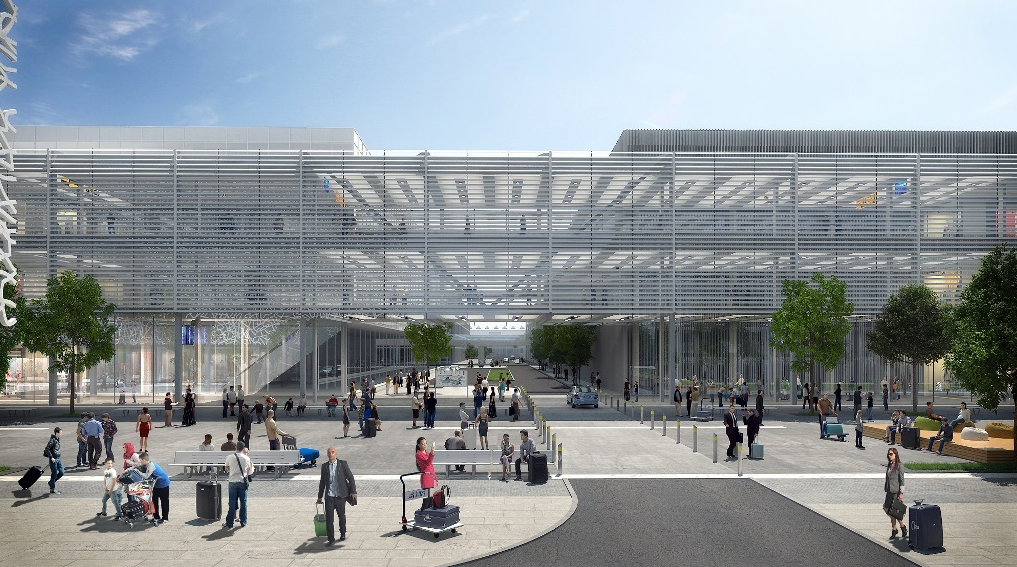Czech Prime Minister Andrej Babiš on Friday called for the presidential election in Belarus to be rerun with independent monitoring, ahead of a meeting of EU foreign ministers.
Babis wrote that they had decided with Polish Prime Minister (Mateusz Morawiecki) to appeal to the European Council President, Charles Michel, to urgently hold a videoconference of council members regarding Belarus.
“I have spoken to Polish Prime Minister and we will propose (the EU council president Charles Michel) an urgent video call of the European Council members,” Babis said on Twitter.
“The election in Belarus must be repeated, must be transparent, and with the presence of foreign observers.”
Babis underlined that there was no time to waste and that the Belarusian people needed aid fast. He also stated that the presidential election had to be repeated, had to be clear and held in the presence of foreign observers.
Díval jsem se teď na vícero videí z Běloruska, kde zbabělá agresivní policie mlátí bezbranné lidi. Je to neuvěřitelné zvěrstvo. Pevně doufám, že jsou to poslední hodiny diktátorského režimu a že občané zvítězí.
— Andrej Babiš (@AndrejBabis) August 13, 2020
“We need additional sanctions against those who violated democratic values or abused human rights in #Belarus,” tweeted European Commission President Ursula von der Leyen on Friday. “I am confident today’s EU Foreign Ministers’ discussion will demonstrate our strong support for the rights of the people in Belarus to fundamental freedoms & democracy.”
“Undemocratic elections and unwarranted claims that Czechia is organizing protests,” Petříček commented on Twitter, adding that he emphasized to the Belarusian ambassador in Prague that Czechia rejects Lukashenko’s claims.
Protests against the alleged falsification of the results of Sunday’s presidential election have lasted for five days now. The police cracked down on those who took to the streets on the first day of protests.
At least two protesters have died and around 6,700 were detained this week.
According to official election results, Lukashenko, who has ruled the country since 1994 and is the first and only president of independent Belarus, won 80 percent of the vote. The opposition immediately called the results manipulated.
- If you are looking for a job in Prague, check our new job section here
- Time to move to a new flat? Rents with no commission here!
- Want to advertise your business on Prague Morning? Contact us at [email protected]
The Czech Republic is interested in having normal relations with Russia, Czech Prime Minister Andrej Babis told CTK on Wednesday.
“We are interested in normal relations with Russia,” he stressed. He expressed hope that the issues arising in the relations between both states would be regulated on the outcomes of mutual talks. He added that the Czech Republic approaches the organization of such talks “very responsibly.”
Babis expressed hope that the Russian-Czech talks stipulated under the 1993 Friendship and Cooperation Treaty would lead to the meeting between Russian and Czech leaders. “The fact that the Czech-Russian relations are not ideal is not surprising neither to us nor to Russians. This is why we have agreed to begin Czech-Russian consultations,” the PM noted.
During the talks, the parties will assess the state of Russian-Czech relations and regulate the existing disputes. The Czech government is interested in developing cooperation between both states, Babis added.
The Czech PM’s words came as a follow-up to the earlier statement made by Kremlin Spokesman Dmitry Peskov. Peskov told reporters on Wednesday that so far, no high-or top-level talks are planned between Russia and the Czech Republic.
When asked about the state of Russian-Czech relations due to recent events, namely the arrest of Ivan Safronov, advisor to the head of Russia’s Roscosmos space agency, for alleged handover of sensitive information to the Czech special services, Peskov mentioned another incident: the demolition of the monument to Soviet marshal Ivan Konev in Prague.
“Recently, our relations with the Czech Republic have been marred by certain events and certain unfriendly steps taken by the municipal and Czech government,” Peskov noted. “This has had a negative effect on the general state of our bilateral relations, however, Russia calls for good relations with all countries, including the Czech Republic,” the Kremlin spokesman said.
“Russia will avoid a worsening of relations with the Czech Republic, Foreign Ministry spokeswoman Maria Zakharova said, commenting on press comments on the alleged preparation of an attack against Czech officials by Russia.
The Czech press reported the alleged arrival of a representative of the Russian security organs to eliminate officials responsible for dismantling a monument in Prague dedicated to Soviet Marshal Ivan Konev.
“We do not want tension in relations at all”, said Zakharova, who affirmed that everything possible is being done so that this does not happen, “since we depart from the fact that these links must be developed on the basis of mutual respect,” she said.
In addition, she considered strange the decision of the Czech government to rename Pod Kaštany Square, where the Russian embassy in Prague is located, in memory of the opposer Boris Nemtsov, organizer of protests against the Russian government in 2011 and who died the victim of an attack.
Commenting on information published by the Czech weekly journal Respekt regarding the alleged arrival in the Czech Republic of a Russian security official with the purpose of poisoning Prague municipal officials, Kremlin spokesman Dmitri Peskov called that version a sham.
The Prime Minister Andrej Babis, considered, for his part, that the expulsion of the Russian ambassador would not be necessary for anyway, because of the aforementioned information.
Moscow denounced at the time the intention of the Czech authorities to harm relations with Russia, insisting on the removal of the monument to Konev, even amid the limitations imposed by the coronavirus.
One of the Prague municipal leaders took advantage of the situation of the compulsory lockdown of the population to mobilize several workers and dismantle the aforementioned monument, dedicated to who is considered to be the liberator of then-Czechoslovakia from the Nazi occupation.
Prime Minister Andrej Babiš announced on social networks that six French patients will be transported to the University Hospital in Brno. “France turned to us for help with the hospitalization of its patients. Due to the sufficient capacity, we accepted their request,” wrote Babiš.
“This is a very important sign that we are also able to help others,” he added.
Babiš announced that some shops may open on Thursday. The shops under consideration include, children’s stores, footwear shops, stationaries, and hardware stores.
France on Saturday reported 441 coronavirus hospital deaths in 24 hours, lower than the record number of 588 recorded the previous day.
This brought the total number of deaths to 7,560 since the epidemic began, top health official Jérôme Salomon told reporters. Of these, 5,532 died in hospital and 2,028 in old age facilities.
Salomon said there were now 28,143 people with coronavirus in hospital in France – up 711 from the day before, with 6,838 of them in intensive care – a daily increase of 176 critical patients.
The number of confirmed coronavirus cases in the Czech Republic reached 4,475 on Sunday morning, the Health Ministry reported.
The number of victims increased to 62 today at 8:30 am and 78 have fully recovered from the infection. Over 80,000 people have been tested to date.
Francie se na nás obrátila s žádostí o pomoc s hospitalizací svých pacientů. Vzhledem k dostatečné kapacitě jsme jim vyhověli. 6 z nich by mělo být transportováno do @FNBrno. Po Itálii, Španělsku a Slovinsku je to další evropská země, které rádi pomůžeme.
— Andrej Babiš (@AndrejBabis) April 5, 2020
Leading Czech political figures consider Thursday’s EU Court of Justice verdict regarding migrant quotas “irrelevant”.
The court concluded that the Czech Republic, Poland, and Hungary failed to fulfill their obligations under EU law after refusing to accept a portion of the 160,000 migrants the EU was looking to distribute among member states following the 2015 migrant crisis.
Czech Prime Minister Andrej Babiš considers it essential that the Czech Republic will not be obliged to accept any asylum seekers in the EU, and that the quota system has expired in the meantime. According to him, it is irrelevant that the three Visegrad countries did not win the court case.
“We lost the dispute, but that is not important. What is important is that we do not have to pay something. Usually, the court claims some compensation for the proceedings,” said Babiš.
“The point is that we will not accept any migrants and that the quotas have expired in the meantime, especially thanks to us,” added the prime minister.
Also, according to Interior Minister Jan Hamáček, the ECJ’s ruling is not significant since the situation has changed.
“The court’s decision responds to events that happened a few years ago. I’m taking the verdict into account but without any further consequences,” Hamáček said.
Marian Jurečka, leader of the People’s Party (KDU-ČSL), stressed that the court did not take into account other measures the Czech Republic contributed to help solve the migration crisis. For example, the country was active supporting refugee camps and offered military aid in the fight against ISIS.
“The Czech Republic definitely tried show solidarity and help resolve the situation, while not endangering its own security,” Jurečka added.
Alexandr Vondra, vice chairman of the opposition Civic Democrats (ODS), also commented on the symbolism of the ECJ’s verdict and the absurdity of quotas.
“We have always argued that the quota system for redistributing migrants is wrong. The EU also withdrew from it, which is something the ECJ’s rulings cannot change. With the verdict, the EU just wants to save face, but I see no way how to put the ruling into practice,” Vondra said
The Czech Republic has excluded South Korea from its list of COVID-19 risk countries and lifted the suspension of direct air routes between the two countries.
According to the South Korean Embassy in Prague on Wednesday, the Czech government has excluded South Korea and China from its list of countries with high virus risk, which was newly updated on Monday.
In the meantime, the Czech health authority has added six nations including the U.S., Canada, Australia, Malaysia, Israel, and Portugal to its 19-nation list.
However, flight operation between Incheon and Prague will likely take some time before resuming. The Czech government is currently banning the entry into the country of all foreigners, excluding long-term residents such as green card holders, through April 11.
Prague’s latest decision has apparently been affected by a declining number of confirmed cases in South Korea, and its relationship with Korean companies with operation in the country.
South Korean Ambassador to Czech Kim Tae-jin and Yang Dong-wan, head of Hyundai Motor’s Czech office, met with Czech Prime Minister Andrei Babish on Wednesday.
Hyundai Motor reportedly donated about 400,000 U.S. dollars and 20,000 face masks to the nation.
A European Commission audit confirmed the billionaire Czech prime minister has a conflict of interest over alleged ties to his business empire.
The European Commission said on Friday it had sent the audit results to the Czech authorities but said the contents were confidential as the audit procedure was ongoing.
Companies in the Agrofert group, the core of Babiš’s assets estimated at $3.5 billion by Forbes, are some of the largest recipients of EU subsidies, both for farming and for investment projects, in the central European country.
They are run by two trust funds since 2017, an arrangement Babis made to meet local law on conflict of interest.
The final version of the report confirmed preliminary findings disclosed in May, in which the European Union‘s executive arm declared that Andrej Babis has maintained ties to businesses he founded while influencing decisions that could have affected EU subsidies they would have received.
Babiš has repeatedly rejected conflict-of-interest allegations, saying he complied with the law by placing his chemical, agriculture and media conglomerate Agrofert in trusts before taking power in 2017.
The Czech Ministry of Local Development said Sunday the report is classified and the process isn’t finished. Czech authorities will have two months to send their response and comments on the audit, the ministry said in a statement.
Babiš has vowed to contest any conflict-of-interest allegations and argued that Czech legal opinion differs from the preliminary findings of the EU’s audit. He has also said the country won’t have to return any subsidies.
A spokesman for the Czech Regional Development Ministry, which is in charge of handling the audit, said that the report had been received.
Prague Airport has introduced a long-term concept and development of the airport as a response to the increasing number of passengers in recent years.
The Ministry of Finance approved the investment in the first stage of the enlargement of Terminal 2 of approximately CZK 16 billion.
About CZK 9 billion is invested directly in the extension of the terminal, while the remaining CZK 7 billion in related constructions, such as taxiways, a parking or an elevated road and other traffic routes in front of the terminal.
Andrej Babis said Wednesday the Vaclav Havel Airport is planning to expand its Terminal 2, which currently serves flights to the visa-free Schengen zone countries, and will build a new runway by 2028, among other things.
“The development will be financed from the airport’s resources and will not burden the national budget in any way. The projects will lead to the modernization of the airport and make the transport more efficient to maintain high passenger comfort,” says Alena Schillerová, Minister of Finance.
The number of passengers using the airport could jump to 30 million a year.
After the completion of the first phase of the extension of Terminal 2 in 2028, a total of 9 new aircraft contact points with boarding bridges and gates for short and medium-haul flights will be added. However, there will also be five alternative aircraft available for handling long-haul flights.
The development planned over the next six years will see an additional 50% retail space by 2026, according to Jiří Petržilka, Executive Director Non-Aviation Business at Prague Airport.
“We just finished the biggest duty-free tender process to date, a five year contract, which was won by Lagardère Travel Retail” he added.
“The first new shops will open in January 2020 and the retail refurbishment will be finished by June 2021. There are three phases of reconstruction and after three months, the first set of stores will be completed and open. It’s been one of the most interesting tenders we’ve ever done, especially for the Travel Essentials part of the business for which were not able to provide passenger data,” he said.
“We want to build an airport city, even though it’s not easy to build and you have to overcome a lot of bureaucracy. It’s the most important project in the history of Prague Airport.”
“We are currently in the first phase of designing – phase one – for development of Terminal 2, where all the traffic will be centralised. But we have to reconfigure the whole traffic system and then phase two development will start in 2022.”
The airport has reached capacity, with 16.8 million passengers using it last year and 17.7 million expected this year.






The Czech government coalition today agreed to raise all monthly base pays in the public sector by 1500 crowns next year and to cancel the lowest base pay level concerning the least paid professions such as cooks.
The pay decision, which covers about 290,000 state employees, will allow the government to complete its draft budget for next year.
“The last question of the 2020 budget is solved,” said Finance Minister Alena Schillerova on Twitter.
Prime Minister Andrej Babis (ANO) told journalists that teachers will be the only group with a percentage increase, while all the others will get a fixed sum.
The non-teaching staff of schools will have their salaries raised by more than 7 percent since the lowest base level will be cancelled, Babis said.
The government planned a pay rise of 10 percent for teachers and 7 percent for the non-teaching professions.
The Finance Ministry expects economic growth to slow to 2.2% in 2020 from 2.4% this year and it sees downside risks to the outlook.
The Czech economy, like others in central Europe, has held up amid a global slowdown thanks to strong domestic demand fuelled by low unemployment and rising wages.
Prague prosecutors have decided to drop charges against Czech Prime Minister Andrej Babiš, who was charged with fraud with EU subsidies.
Prosecutors announced their decision on Friday after evaluating a police recommendation to charge Babiš. Their decision may be reversed by the Prosecutor General.
The case concerns a farm that received EU subsidies after its property was transferred from the Agrofert conglomerate, which belonged to Babis, to 250 companies owned by members of the Czech prime minister’s family.
Subsidies were intended for medium and small enterprises, and Agrofert would not have been entitled to them. Later, Agrofert again became the owner of the farm.
“The evidence gathering led to the conclusion that the Stork’s Nest Farm met the definition of a small and medium-sized business,” attorney Martin Erazim said in a statement.
The EU’s anti-fraud body OLAF had found multiple breaches of national and EU legislation in the project.
Babiš denies any allegations.
Czech Prime Minister Andrej Babiš said on Tuesday that he would withdraw the nomination of Michal Smarda and propose a new Cultural Minister to President Milos Zeman immediately after the coalition Social Democratic Party has the new name, according to local media reports.
Zeman previously said Smarda is not competent for the post of cultural minister. On Monday, Smarda decided to give up the nomination.
Babiš said he had asked President Zeman to quickly solve the problem concerning the nomination of Culture Minister so that the cabinet could be complete and functional.
Communication preceding the proposal of the new candidate must be better than it was in the case of Smarda, Babiš added.
The dispute over the replacement of the Culture Minister has been lasting for more than three months in the country.
In April, former cultural minister Antonin Stanek dismissed National Gallery head Jiri Fajt and Olomouc Art Museum head Michal Soukup, triggering criticism from cultural fields. In May, Babis proposed that Stanek be dismissed and Smarda as his successor.
Zeman was reluctant to dismiss Stanek at first but eventually did so at the end of July without accepting the nomination of Smarda.
More than 120,000 citizens marched in Prague on Monday to call for the resignation of Prime Minister Andrej Babiš, following ongoing public discontent and a recent decision from the European Commission (EC) that Babiš has significant conflicts of interest related to his private businesses.
The decision follows an initiative from Transparency International Czech Republic (TI-CZ), which filed a complaint to the EC last year highlighting Babiš’s conflicts of interest.
The complaint resulted in an audit by EC officials in the Czech Republic, an analysis of the EC’s Legal Service and, ultimately, led to the Commission’s decision last week that Czech Republic repay 17 million euro of EU subsidies that Babiš’s company received over the last two years.
“It is good news not only for us as authors of the initiative, but mainly a victory for all citizens and taxpayers in the Czech Republic and Europe. Prime Minister Babiš’s unprecedented conflict of interest has been confirmed. Now the consequences of the conflict need to be resolved immediately so that the national and European budgets recuperate the costs,” comments David Ondráčka, Director of TI-CZ and member of Transparency International’s global Board.
“The EU decision highlights that the rules apply to everyone, even prime ministers,” said Delia Ferreira Rubio, chair of Transparency International. “Political leaders should not be allowed to hide behind obscure, non-transparent structures, reaping the benefits at the expense of citizens,” she added.
Timeline of events
In June 2018, TI-CZ revealed that Prime Minister Babiš was a controlling entity of Agrofert, a company that operates in agriculture, construction, logistics, and other sectors. As the sole beneficiary of two trust funds that own 100 percent of the shares of Agrofert, Babiš received millions of euros in EU subsidies each year.
As a result of this discovery, TI-CZ uncovered another conflict of interest involving Babiš and filed a series of complaints with both Czech and EU authorities.
First, in August 2018, TI-CZ filed a complaint with the Czech authorities concerning the prime minister’s conflict of interest in relation to media ownership.
As part of its many holdings, Agrofert owns a publishing company called MAFRA. However, Czech law prohibits government ministers, including the prime minister, from owning or controlling any media outlets.
Second, in September 2018, TI-CZ sent a complaint and open letter to the European Commission concerning Babiš’s conflict of interest as a beneficial owner of Agrofert.
As a result, in December 2018, the European Commission suspended subsidies to Agrofert and last Friday, after a thorough review of the case, the EC confirmed that Prime Minister Andrej Babiš maintains significant conflicts of interest.
In addition, in January 2019, Czech authorities found the prime minister had a conflict of interest in relation to his media holdings. Babiš appealed and Czech authorities are currently reviewing the case again. TI-CZ urges Czech authorities to take into account the EC’s recent decisions regarding this case.
Author: red

